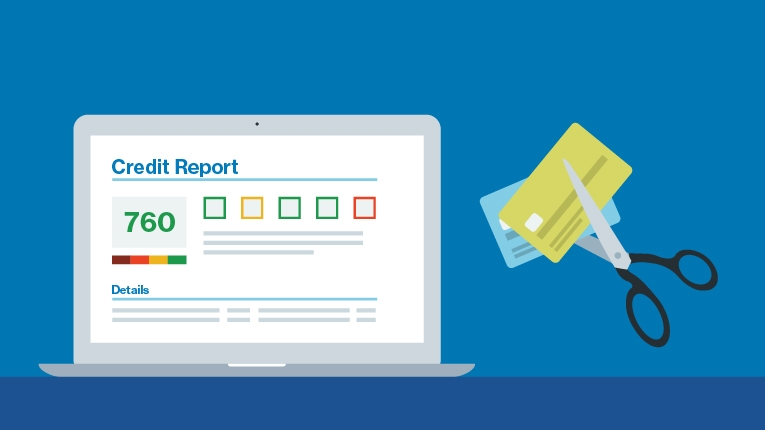Personal Loan Eligibility: Criteria You Need to Know Before You Apply

Lenders generally consider your credit score, payment history, current income, and current debt when determining your eligibility for a personal loan.
Getting a personal loan is simple and straightforward as long as you can meet the lender’s eligibility requirements. It’s usually a good idea to rate shop around to make sure you’re getting a competitive annual percentage rate (APR) and terms.
Actions like prechecking your eligibility, improving your debt-to-income ratio, and not asking for a higher loan amount than you need may help you qualify for more favorable rates and terms.
If you need a loan now and your credit history, credit score, or income is preventing you from getting approved for a loan, consider applying with someone else as your co-borrower.
Thinking about a personal loan? For whatever reason it might be—consolidating credit cards, making a big purchase, working on home renovations, or paying down debt—it’s important to find a loan that not only meets your needs, but one you have a good chance of qualifying for. Here’s what you need to know about personal loan eligibility and personal loan requirements before applying for a personal loan.
What Lenders Look for When Determining Personal Loan Eligibility
From your credit score to your assets, several factors play into whether you’re approved for a personal loan, how much you may qualify for, and what interest rate and terms you may receive. Generally, here’s what lenders consider when determining eligibility for a personal loan.
Credit Score
Though credit score requirements vary from lender to lender, your credit score helps lenders determine eligibility for a personal loan. With FICO® and VantageScore® credit models, credit scores that range from 800 and up are considered excellent, a very good score is between 740 – 799, and a good score falls between 670 – 739. Many lenders prefer extending credit to borrowers with good to excellent credit scores—670 and up. Many loans may still be approved that are under this range, but interest rates are typically higher, too.
Keep in mind, having a high credit score doesn’t mean you’ll automatically get a lower interest rate, but it can help.
Payment History
Your payment history is one of the biggest factors influencing your credit score. It’s also something lenders will look more closely at when considering your application for a personal loan. From the lender’s perspective, having a history of paying your debts on time is a good indicator of how you’ll repay your loan.
Before you begin the loan application process, make sure your debts are current. If you have any past due balances, try to bring these current. While any missed payments can stay on your credit report for up to seven years, it can help show lenders you’re working on improving your financial situation if you’ve brought those accounts current before you apply. Once all your accounts are current, set up automatic bill pay or automatic payment reminders. Over time, your payment history (and credit score) could improve.
Income
Your income factors into loan eligibility because it demonstrates to lender whether you have sufficient income to cover your debt. Most lenders set a minimum income limit for loan approvals, depending on the asking amount. If you have full-time or part-time income, plan on sharing your last two or more paystubs. If you don’t have a steady paycheck, many lenders will still be willing to work with you, however, you may need to supply additional information and proof of income. To save time, get your tax returns, 1099s, and balance sheets together. All these documents can help substantiate any income irregularities.
Current Debt
When considering your loan application, lenders usually look at your current debt-to-income (DTI) ratio—your current debt compared to your current income. Often, lenders look for a DTI under 40%—if you’re above that mark some lenders may consider you a higher-risk which may affect your ability to qualify.
To calculate your DTI, add up your monthly debts and divide that total by your gross monthly income. For example: If your monthly debt payments are $1,000 and your gross monthly income is $5,000, your DTI is 20%. Keep in mind, monthly payments like insurance, utilities, taxes, and recurring home expenses are generally not used to determine debt.
If your DTI is higher than 40%, you can bring the number down by paying off some (or all) of your debt. As you work to lower your DTI, try not to make any large purchases on your credit cards or take on any new debt obligations.
Personal Loan Eligibility FAQs
How old do you have to be to get a personal loan?
You have to be at least 18 years old to apply for a personal loan, though it’s important to keep in mind most lenders factor in age, job, and work experience when determining eligibility. If you’re applying for a personal loan before you turn 21, make sure to include a job history.
Are personal loans hard to get?
Getting a personal loan is simple and straightforward as long as you can meet the lender’s eligibility requirements. However, it’s a good idea to rate shop a few lenders to make sure you’re getting a competitive annual percentage rate (APR) and terms. Be sure to compare the APR’s offered (which includes any fees) against several lenders before you sign up.
Will lenders look at my assets?
Most personal loans are unsecured which means lenders won’t be using any of your assets (such as a home, car, or savings account) as collateral. While some lenders may ask about your available liquid assets (e.g., how much you have in your checking and savings account), most generally won’t. However, if you decide to apply for a secured personal loan, this means your loan will use one of your assets as collateral (most are backed by a savings account).
Where can I get a personal loan?
Many types of financial institutions offer personal loans: traditional and online banks, credit unions, and online lending marketplaces. Comparing rates from a variety of financial institutions and lenders can help you find the best offer for your needs.
What if my personal loan application is denied?
Each lender sets their own eligibility requirements for personal loan approvals. It helps to check your rate and compare your options with several lenders before you apply. However, if you are struggling to qualify for a personal loan you may want to take a step back and see what changes you may need to make in order to qualify. For example, you can work on paying down debt or boosting your credit score before you reapply. You can also think about finding a coborrower to apply for the loan with you.
6 Tips to Qualify for a Personal Loan
If you think a personal loan is right for you, start by assessing how much you want to borrow and make sure you have a solid plan for repayment. Once you’ve shopped a few different lenders, these six actions can help you qualify for more favorable rates and terms.
1. Improve your debt-to-income ratio.
Your debt-to-income ratio is a factor in determining your loan eligibility. Paying down debt before you apply for a personal loan can help improve your DTI, increasing your chances of getting a loan at more favorable rates and terms.
Start by creating a budget if you don’t have one, and come up with a plan to reduce your debt before applying for a personal loan. If you’ve got time, boosting your income with a second job could allow you to make extra payments and help you pay down your debt faster.
2. Precheck your eligibility.
While credit inquiries aren’t a huge factor in your credit score—accounting for just 10% of your FICO® Score—applying for several loans or credit cards at once could signal to lenders that you may become overextended. Instead, try checking your rate for a personal loan online with a few different lenders first. Checking your rate won’t impact your credit score and can help you see which lender is willing to offer you more favorable rates and terms.
3. Compare different lenders.
Research is key to securing personal loans with favorable interest rates and terms. Take the time to learn the difference between loan offers with different lenders to find the one best for you. In addition to checking with your local bank or credit union, online lenders and banks might offer a more cost-effective solution for your needs, especially when you consider interest rates, APRs, and the added fees associated with some of the larger traditional banks. Each type of lender—from a local community bank to an online lending marketplace—will offer different rates, fees, and terms. Compare your options before making a decision.
4. Improve your credit score.
If your FICO® Score is lower than 670, work on increasing it. Do this by making at least the minimum payment on all your bills on time and making sure your credit report is free of any errors that might be affecting your score. If you do find any errors or inaccuracies, file a dispute with the credit bureaus.
5. Don’t ask for a higher loan amount than you need.
Keep in mind, generally you’ll qualify for a personal loan you can comfortably afford. If your income isn’t high enough to easily repay the monthly payments, it may be difficult to find a lender willing to approve your loan. Try lowering the total amount you’re asking for. Once you’ve paid off or paid down your loan — or if you receive an income boost — you can always reapply for another personal loan if you need to borrow more. Many LendingClub members focused on debt consolidation are repeat borrowers.
6. Consider a joint personal loan.
If you need a loan now and your credit history, credit score, or income is preventing you from getting approved for a loan, consider applying with someone else as your co-borrower. With a joint personal loan, you and a co-borrower apply for and sign the loan together. You’ll both be responsible for payments and both have access to the funds, which can be great if you’re using the loan for something you both need, such as home repairs. Some people use a joint personal loan to help consolidate and pay down debt. By applying together, the lender will consider both you and your co-borrower's qualifications, which can help push you over the threshold for qualification or get you a larger loan amount than if you applied on your own.
The Bottom Line
Understanding the factors that determine personal loan eligibility can help increase your chance for approval before you apply. Understanding that lenders use your credit score, payment history, debt-to-income ratio, and other factors to determine your eligibility can help you know what you might need to do to successfully apply and get approved for a loan. Shopping loans and checking your rate with different lenders can also help you gain a more favorable rate and loan amount.




